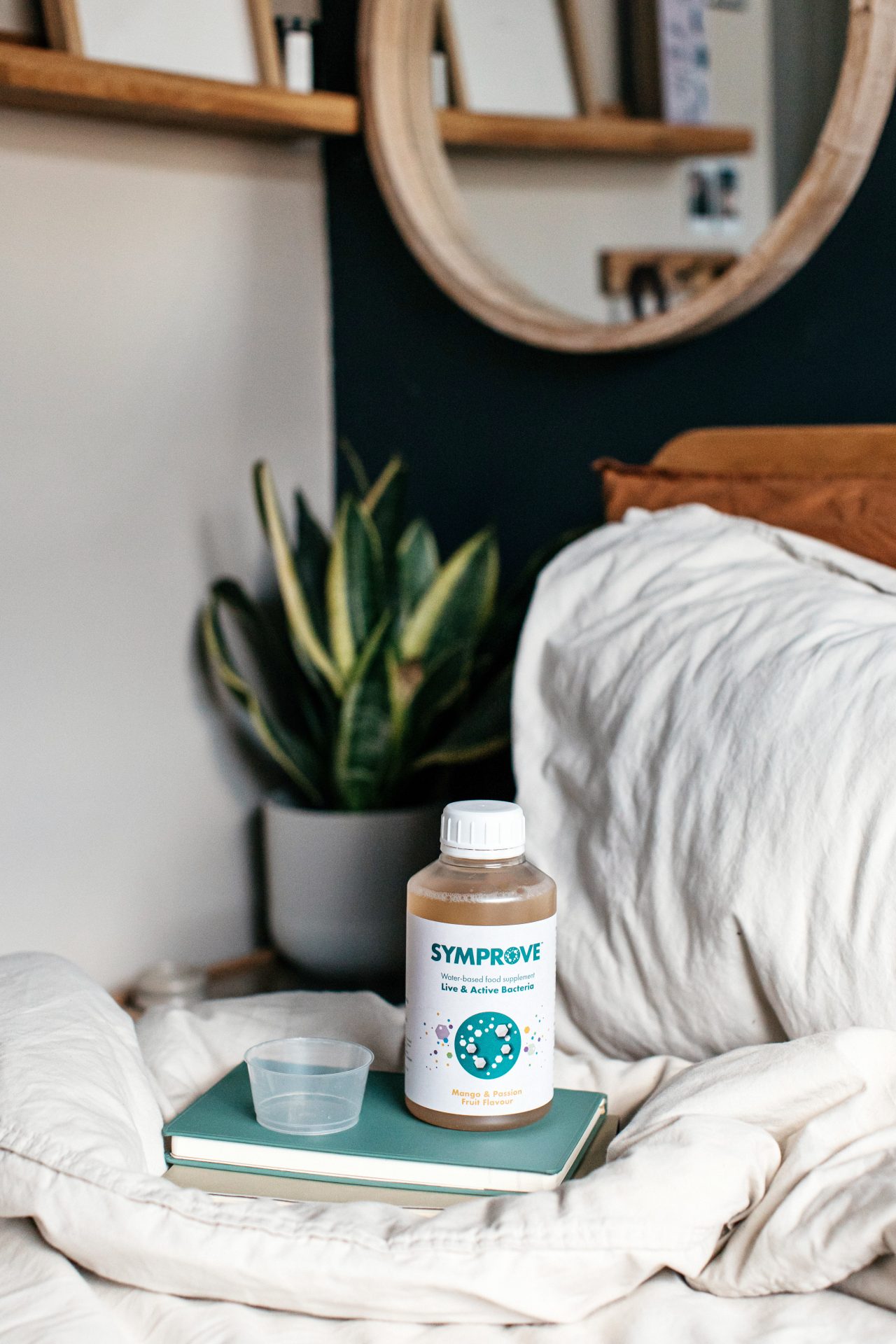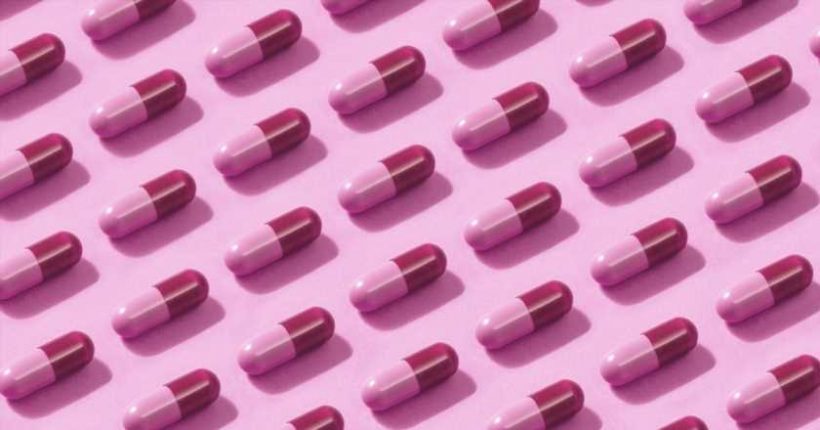After a particularly unpleasant digestive flare-up, writer Chloe Gray decided to embark on a three-month probiotic challenge. Here’s how she got on…
The global probiotic market is worth around £53.28 billion – and it’s still growing. To put that into perspective, the vitamin D market is worth substantially less: around £950 million, despite being dubbed an essential supplement during the dark months in many parts of the world. But perhaps that’s because we’re also starting to see our gut health as essential.
There’s endless research to show that a healthy microbiome improves mental and physical health, and probiotics are made up of live bacteria that are meant to improve the function of our gut.
You may also like
Probiotics: experts explain what to look for when buying supplements
What are probiotics and what are the benefits?
Out gut is home to trillions of live bacteria that are responsible for digestion, hormone production and supporting a functional immune system, amongst other things. Lots of factors can influence the types of bacteria that live in our gut as well as how many of them we have, including the things we eat, the exercise we do and how stressed we are.
If you don’t have enough of the right strains of bacteria in the gut, you might find you have digestive issues, tiredness or low mood. That’s where probiotics are said to come in handy. Probiotics are simply strains of bacteria that come in drinks, tablets or powders, and the idea is that the organisms will colonise your gut to improve your gut health.
As Ruth Harvey, a dietician from Pod&Pea Nutrition, previously told Stylist, “If you are taking the right bacteria, at the right dose, in the right form and stored in the right way, evidence has shown that good bacteria will populate the gut.”
You may also like
Symptoms of poor gut health: signs you have too much “bad” gut bacteria
While no expert would recommend that everyone should take probiotics willy-nilly, studies show that there are large groups of the population who would benefit from at least a short course, particularly those who suffer from constipation and diarrhoea, have irritable bowel syndrome (IBS) and irritable bowel disease such as colitis.
A 2020 study found that strains Lactobacillus acidophilus and Bifidobacterium lactis improved abdominal pain and normalised bowel habits in adults with IBS, while a paper from the World Journal of Gastroenterology found that Lactobacillus rhamnosus was beneficial for improving constipation and diarrhoea in people with IBS symptoms.
Having been diagnosed with IBS, I’ve considered taking probiotics more than once. In fact, I’ve tried them before, and many products have left me feeling no better off or even worse (more on this later). But after a particularly bad digestive flare-up earlier this year, I decided to give them another shot.
Wholefood probiotics v supplements
Given the probiotic boom, there is an overwhelming amount of choice on the market. The first port of call for anyone interested in improving their gut health should be probiotic foods like yoghurts and kimchi, but having tried to eat my fill of fermented grub, I wanted to try a course of probiotic supplements that offer a dose of healthy bacteria larger than you can get from just your diet.
I opted for Symprove, a liquid supplement that you take first thing every morning. It is one of the few brands on the market that is clinically proven to reach the gut alive and colonise it, unlike other supplements that can commonly be destroyed by the enzymes and acids in our digestive tracts.
But the main reason I chose it was because of the ingredients list. It contains both the beneficial Lactobacillus acidophilus and Lactobacillus rhamnosus, as well as Enterococcus faecium which, in preliminary studies from earlier this year, was shown to improve serotonin transporters that are associated with improved function of the gut.
Why three months is the best length of time to try a probiotic
Symprove recommends starting with a 12-week course of its probiotic drink. That’s based on advice from the British Society of Gastroenterology that recommends sticking with bacteria-based supplements for three months to see if any changes take effect.
The probiotic challenge: the review
Almost every morning for those 12 weeks, I pulled myself out of bed and walked straight to my kitchen to take the 70ml shot. It comes in strawberry, raspberry and tropical flavours, but really it is a fermented, vinegary drink. While it isn’t the most pleasant way to wake up, it’s not completely offensive and it’s easy to get used to.
You have to wait 10 minutes before eating or drinking anything else after taking the supplement. Still, often I would need to grab a slurp of water before because I was desperate to rehydrate after sleeping all night. While it’s not advised, there’s no negative side effect to taking it alongside water other than simply slowing the release of the bacteria into the gut.
You may also like
Can running improve your gut health? Here’s why dietitians recommend regular jogging
I wasn’t expecting huge results from probiotics. While the research into Symprove is positive, whenever I have dabbled in probiotics before, I haven’t ended up feeling great. Often, they’ve left me feeling more bloated or with a weird feeling of fullness in my stomach.
Adverse side effects like worsening digestion are common complaints about probiotics. According to Symprove, the gut often needs time to adapt to the new bacteria, but these changes should be mild and transient. In the past, they’ve often been so bad I gave up.
But not this time. During my 12-week experiment with Symprove, things only got better.
My digestion has never been so regular; even when travelling or eating foods that I usually struggle to digest, I’m regular. While I’m not totally cramp-free, I have also noticed less frequent pain – again, even when eating foods that often don’t agree with me.
During my extreme flare-up earlier this year, one of my key symptoms was intense gastritis (a type of acid reflux due to inflammation of the gut lining). The fiery ache has been kept at bay over the past few months, and while I put this down to factors including patience and reducing stress, I do think that probiotics must have had a role to play. A 2020 review also backs the belief that probiotics can be useful for symptoms of acid reflux, although more research needs to be done.
Symprove costs £149.99 for a 12-week course, so it’s relatively expensive, but I’d have paid that to sort my horrible symptoms out.

Like all supplements, Symprove won’t be right for everyone, and if you’re worried about your gut health, it’s best to talk to a doctor before buying supplements. But for me, this time round, probiotics have just changed the game. Now the 12-week course is over, I will focus on keeping those bugs alive with a fibre-rich diet that helps them thrive, but I’ll reach for probiotics for a gut-health boost when I need it.
Images: Symprove; Getty
Source: Read Full Article
